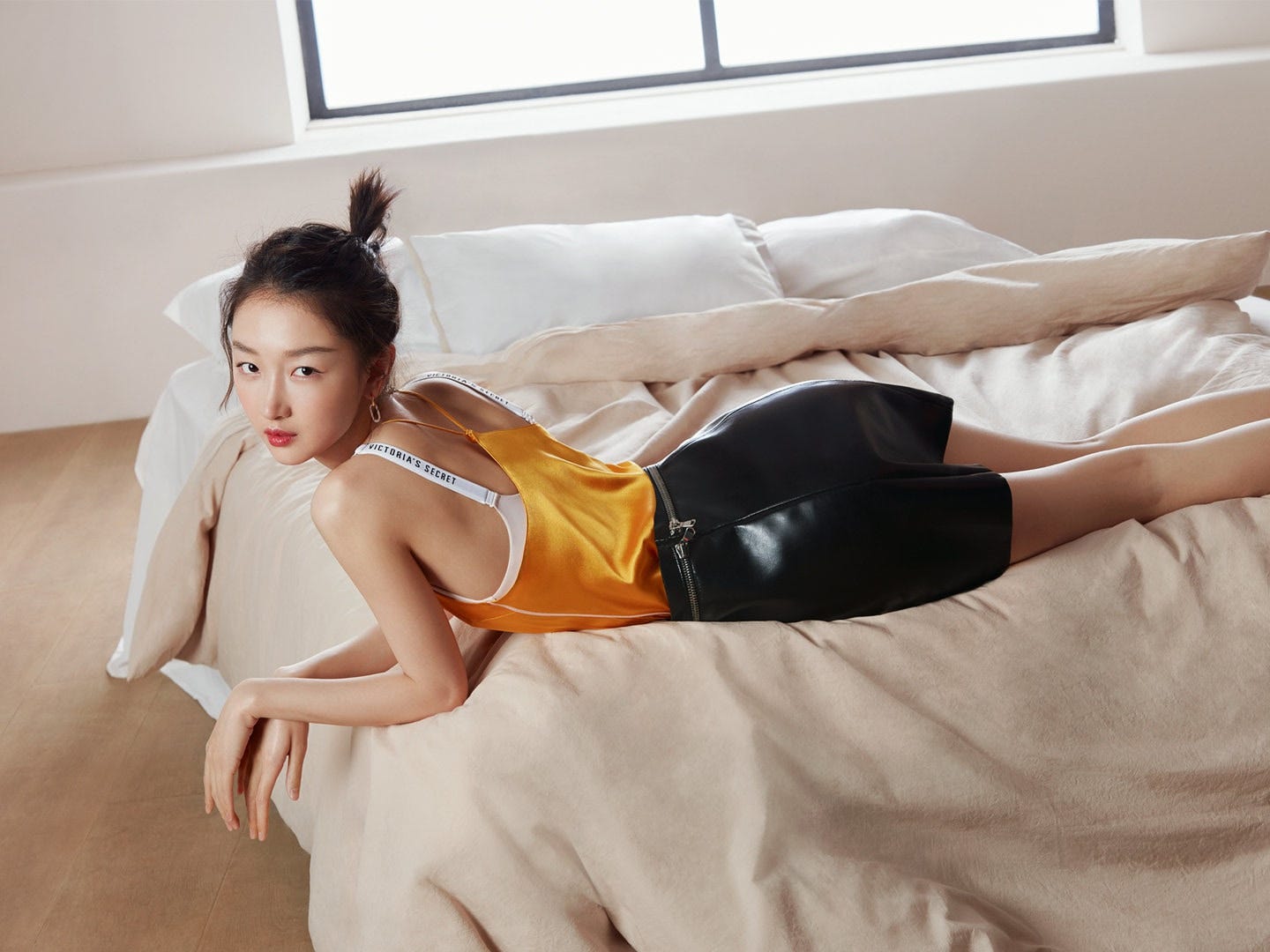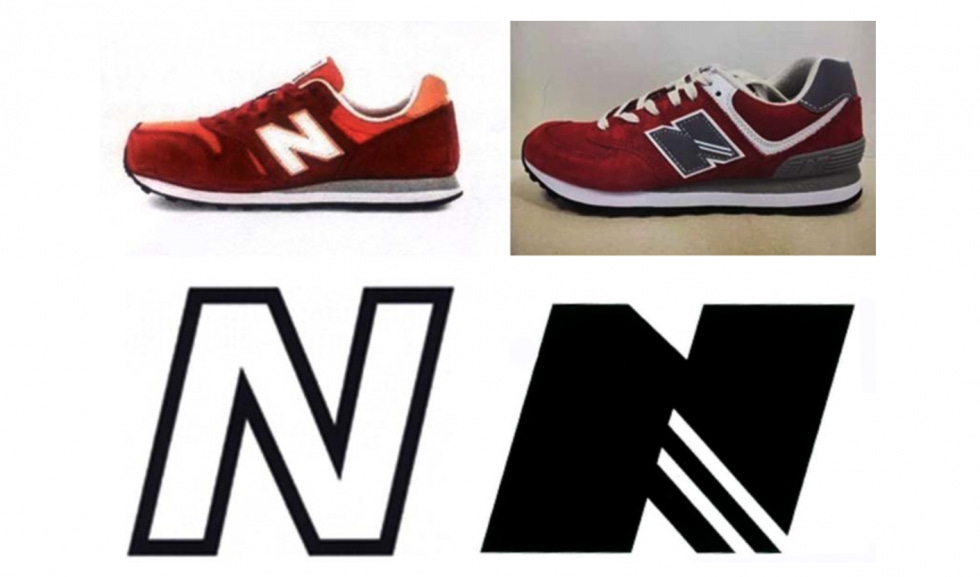Brands Still Flock to “Animal Crossing” Despite China Restrictions
Plus: Victoria's Secret breaks the mold, a futuristic runway show, and our Report Corner.

The recent disappearance of “Animal Crossing: New Horizons” from e-commerce sites and game-streaming services in China — amid concerns that it could be used as a platform for Hong Kong democracy activists — doesn’t appear to have dampened brands’ enthusiasm to get in on the game as a way of reaching Chinese consumers. (And engaging in some content commerce along the way.)
The Nintendo title has not been officially available in China, which has strict regulations governing the issuance of game licenses, but players in China have been able to join in on the global craze through gray market imports of game cards or Nintendo Switch consoles from overseas, which are sold through local e-commerce platforms such as Taobao and Pinduoduo. Even as the platforms have cracked down on sales, creative sellers have started using pseudonyms for their listings.
The relaxing island-building escapism of “Animal Crossing,” with its opportunities for much-needed social interaction, has made it a go-to game for the current pandemic era, and it offers a low-stakes way for brands to connect with housebound consumers on their own turf, at very little cost. Unlike other popular games such as Fortnite, which actively pursue brand partners for lucrative deals, brands can establish a presence on “Animal Crossing” for free, investing only in the creation of their own content.
In China, food and beverage and fashion brands have been among the most active. Net-a-Porter, which last year established a Tmall flagship store, began offering virtual fashions from Chinese designers that players can use to dress their avatars, and subsequently purchase the real-world styles via Tmall.
Peacebird invited players to design their own outfits in styles offered by the brand, with prizes of real-life clothes for the best replicas. Another Chinese fashion label, JNBY, promoted its line of home products via a treasure hunt on its brand island, with real-world prizes on offer along with virtual decor for players’ islands.
Local chain Hey Tea built an island with a museum showcasing its products, and asked players to come visit and enjoy a cup of tea, while Fisheye Cafe called on players to collect coffee makers, building materials and other decor to help it open an outpost of the chain on its island, and offered free coffee drinks for supporters.
Alibaba’s Freshippo grocery established a supermarket on its island and used to promote sea bass, a joking reference to the species that is somewhat hated among players because it is so common and easy to catch.
Despite all of the creative activity and goodwill being built, there are still questions about how the restrictions on “Animal Crossing” in China will, at best, limit the market for the game, if not eliminate it entirely, which doesn’t bode well for long-term brand efforts through the game. (Read more in Chinese from SocialBeta.)
Interested in learning more about China’s streaming video services? Drop us a line and we’ll make sure you’re first on the list for the upcoming CCI Guide to Streaming Platforms in China. Also, reach out anytime if you’ve got a story tip, are interested in contributing, or have any questions or comments!
Mentioned in today’s newsletter: Burberry, Discovery Channel, Douyin, Freshippo, Hey Tea, JD.com, JNBY, Lancôme, Net-a-Porter, Nintendo, Pepsi, Perfect Diary, Victoria’s Secret.
Victoria’s Secret Smashes its Own Stereotypes

The lingerie label best known for promoting sexiness via curvy models has announced a new celebrity spokesperson that breaks the mold. Actress Zhou Dongyu was recently announced as Victoria’s Secret’s new brand ambassador for China, sparking debate about the brand’s image and conventional ideals of attractiveness with a campaign that invites women to define sexiness on their own terms.
The brand introduced Zhou as its new ambassador with a campaign that acknowledges the departure from the typical Victoria’s Secret model. Using the hashtag “sexy is this” on Weibo, the brand released a video of Zhou, looking fresh-faced and natural, talking about how she sees herself and the concept of “sexiness” as being comfortable with oneself. It is likely to resonate with women who buy lingerie for themselves and value comfort and quality above sexual appeal when making purchasing decisions.
An actress with a decade’s worth of critically acclaimed roles, Zhou is also one of China’s most popular celebrities, with more than 30 million followers on Weibo. She was named the most commercially valuable female celebrity for 2019 by Jinri Toutiao in its annual entertainment awards, and her recent roster of brands includes Burberry, Pepsi and Lancôme. The brand is also set to announce another bankable star, actress Yang Mi, as a spokesperson.
It’s a savvy move for the struggling brand, which saw sales slip in recent years and is now facing an uncertain future as a result of the coronavirus, with its private equity buyer seeking to cancel its purchase from L Brands. And with stores in the U.S. shuttered, the Chinese market, where Victoria’s Secret has 67 outlets, takes on increasing importance.
The brand’s overtly sexualized messaging never went over very well in China. Even though Victoria’s Secret moved its annual supermodel-filled fashion show to Shanghai in 2017, it faced numerous hurdles from authorities before being permanently cancelled last year as part of a broader shift in marketing strategy. (Read more in Chinese from Jieman.)
Runway Fashion’s Virtual Tendency

The recent Tmall-powered virtual Shanghai Fashion Week for Autumn/Winter 2020 was no fluke, as recent digital initiatives to showcase Chinese designers are proving.
Designer e-commerce platform ICY teamed up with art and fashion marketing firm Xcommons and digital agency Intercreative United to present “Parallel Reality,” an immersive virtual experience promoting the latest collections of three emerging Chinese designers, Xu Zhi, Roderic Wong and Andrea Jiapei Li.
A space in Shanghai was digitally transformed into a futuristic venue to feature the runway shows, which could be accessed via QR code, and audiences were invited to interact within each designer’s gallery, which reflected their varied personal styles.
Audiences could also access additional content such as brand films, discussion areas and a shopping zone, where capsule collections were available for immediate purchase and advance orders could be placed for the Autumn/Winter lines.
Douyin continues its push to offer much more than just short videos for entertainment with its ongoing expansion into e-commerce livestreaming and longer content.
It recently partnered with Shenzhen Fashion Week to present a “cloud” version of the event, which ran from April 10-16. Taking “no limits” as its theme, Shenzhen Fashion Week sought to blur the boundaries between fashion and technology by releasing 70 short videos of Autumn/Winter collections from domestic and international labels via its official Douyin channel, with links to e-commerce enabled by Shenzhen Fashion Week’s WeChat account and an associated mini-program so that viewers could shop as they viewed the shows.
Brand Film Pick: Perfect Diary’s Cat Person
To market its recent collaboration with Discovery Channel on a collection of animal-themed eyeshadow sets, the direct-to-consumer C-beauty brand turned to e-commerce livestream star Li Jiaqi and put his bichon frise on the cover of the dog palette, but went with a more traditional celebrity to partner with its cat colors.
Actor Luo Yunxi, Perfect Diary’s Color Ambassador, stars in a short film to highlight the power of color for the brand. Luo plays a photographer who cannot see color, and the film is shot from his perspective in black and white. While on a shoot, a woman appears to him in color, and he takes several pictures of her, focusing on her dramatic cat eye makeup. He runs after her but fails to find her, instead coming across a cat that he takes back to his studio, bringing color to the developed images of the mysterious woman.
The film puts a clever twist on the familiar tropes of mysterious women in fashion films, neatly tying together Perfect Diary’s product with the star power of its celebrity ambassador and giving the cat that graces the brand’s color palette an important supporting role.
Report Corner

Media 360 looks into China’s male beauty market, which has grown by an average of 13.5% annually from 2016 to 2019 and is expected to be worth RMB 2 billion ($282 million) by the end of this year. (Report in Chinese)
Questmobile released a report on new trends in women’s consumption focusing on e-commerce. Among the findings: As of February 2020, 446 million women were shopping online, a year-on-year increase of 8%, each spending an average of 416 minutes a month, up 10.3% from the previous year.
News in English

Lululemon won over Chinese consumers with its digital strategy during the coronavirus, but now it has shifted to damage control following a U.S.-based art director’s Instagram post promoting a “bat fried rice” shirt created by a third party. Reuters
A look at luxury brands on WeChat as they adapt their strategies on the platform to fuel deeper engagement with consumers and focus on boosting sales conversions. Technode
JD.com has drawn more than 20 luxury brands to open stores on its platform so far this year, including Delvaux, Proenza Schouler and Pringle of Scotland, showing that Tmall is not the only game in town. Inside Retail Asia
“Revenge spending” by Chinese consumers may not be enough to save the luxury sector from a protracted slump as a result of the coronavirus epidemic, as nearly 30% of young urban shoppers plan to spend less on high-end goods in the near future. Bloomberg
Hip-hop artist Kris Wu is one of China’s most bankable celebrities, and his popularity among Gen Z consumers has drawn numerous luxury brands to seek him out, including Burberry, Bvlgari and Lancôme. Radii
In another big win for a foreign brand, New Balance prevailed in a trademark case against local rival New Barlun, which used a similar “N” logo on its products. The Fashion Law
Why Procter & Gamble’s existing strategy in China may have to undergo a significant transformation to thrive in the market’s burgeoning e-commerce environment. Forbes
Like other mobile phone makers, Huawei invests heavily in content to show off the capabilities of the cameras on its high-end models, but the brand has repeatedly used images shot with DSLR cameras in its marketing. Abacus
The upcoming May 1 holiday and Dragon Boat Festival in late June will be important indicators for the recovery of Chinese consumption in the post-coronavirus period. GroupM
We’ve Got China Covered
China Film Insider: Tough Transmission from Theatrical Distribution to Online Distribution
Jing Daily: Worry-Free Strategies Luxury Brands Can Learn From China
Jing Travel: Will “Revenge Travel” Spark a Rebound for China’s Domestic Market?
Thank you for reading! We will be back on Tuesday with more news and case studies, as well as an update on our Guide to Streaming Platforms. Until then, have a great rest of your week and stay safe!


